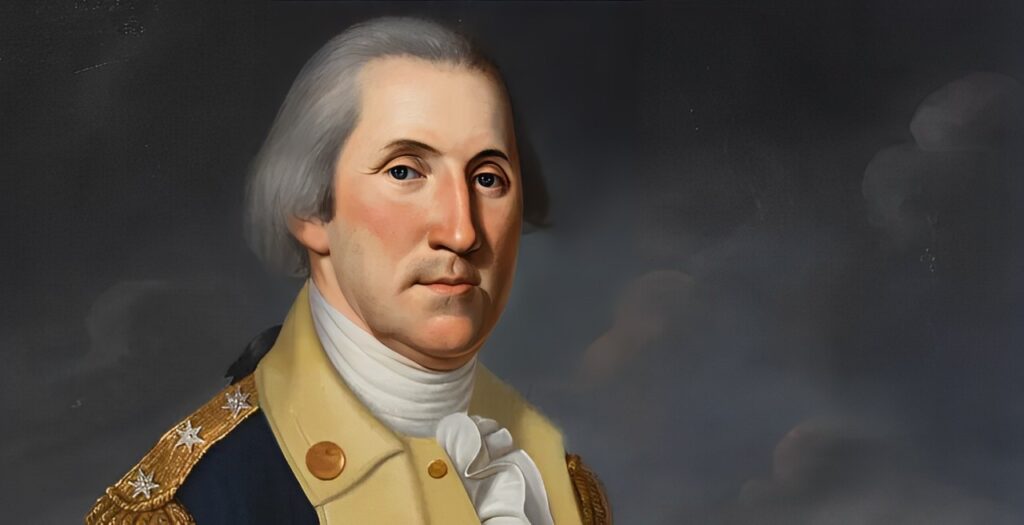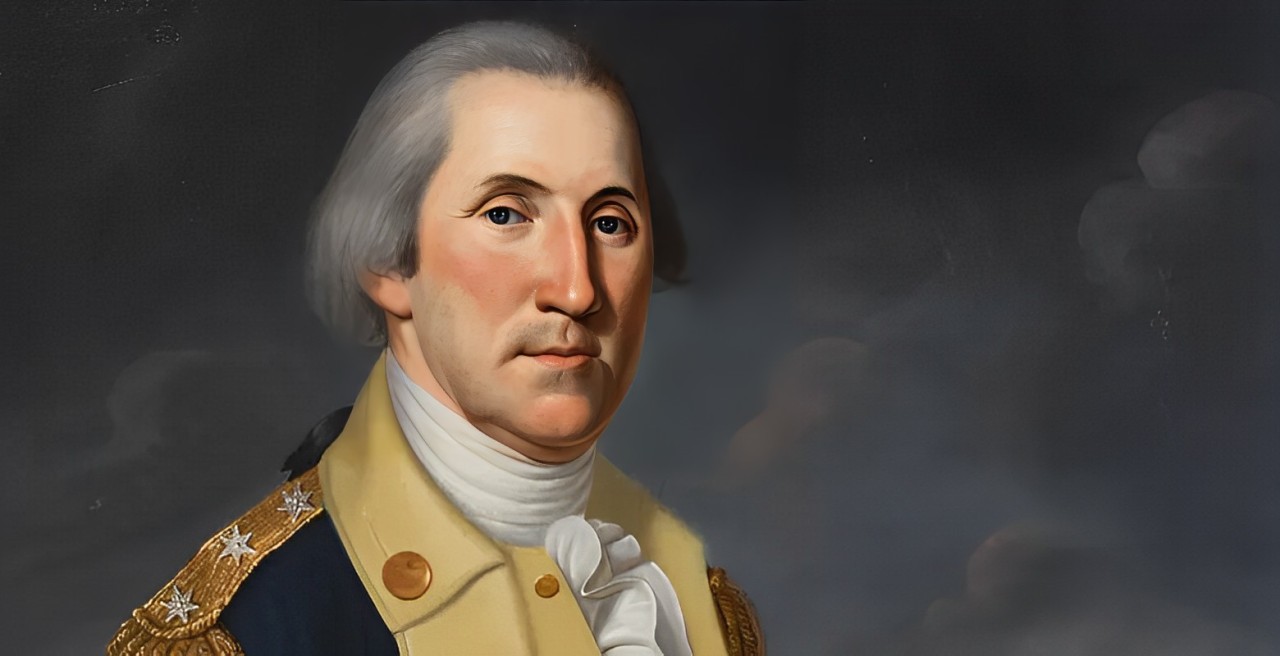
George Washington (1732–1799) is frequently referred to as the “Father of His Country” due to his crucial contribution to the establishment of the United States. As the country’s first president, Washington’s choices and leadership influenced the political and intellectual direction of the country.
He is regarded as one of the most important individuals in global history due to his accomplishments during the American Revolution, his legacy as a politician, and his personal life and riches. The age, passing, presidency, involvement in the revolution, family history, and political legacy of George Washington are all examined in this article.
| Full Name : | George Washington |
| Date of Birth : | February 22, 1732 |
| Place of Birth : | Westmoreland County, Virginia, British America |
| Date of Death : | December 14, 1799 |
| Age (at death time) : | 67 years |
| Profession : | Soldier, Statesman, First President of the U.S. |
| Presidency : | First President of the United States (1789–1797) |
Early Life
George Washington was born to Augustine and Mary Ball Washington on February 22, 1732, in Westmoreland County, Virginia. Of his six siblings, he was the oldest. Personal sorrow characterized Washington’s early years; his father died while he was just 11 years old, forcing him to take on more responsibilities early on. He received his education from private tutors and went on to study surveying and mathematics, which enabled him to become a proficient surveyor, a career that improved his prospects.
Washington started to feel like a leader while he was young, and his early military service in the French and Indian War (1754–1763) would later be crucial to his success during the American Revolution.
Death
At the age of 67, George Washington died on December 14, 1799, following a brief illness. He had retired from public life after two terms as President and lived during his latter years at his home, Mount Vernon, in Virginia. He had a fever and sore throat when he first became unwell, and despite his physicians’ best attempts, he passed away two days later. Since Washington was seen as the embodiment of their nation’s power and independence, the American people were tremendously saddened by his loss.
Washington’s Presidency
From April 30, 1789, until March 4, 1797, George Washington served two terms as the first President of the United States. The nation’s first president, Washington, was chosen by a unanimous vote and had a significant role in forming the new administration. The two-term restriction and the establishment of the Cabinet to advise him on a range of issues are only two of the significant precedents he established for the position.
The first national bank was established and the Bill of Rights (the first ten amendments to the U.S. Constitution) was passed during Washington’s administration, both of which helped to stabilize the country’s economy. Particularly during the French Revolutionary Wars, Washington’s leadership made sure that the United States maintained its neutrality in disputes between European countries. His emphasis on neutrality in foreign policy had a significant impact on how the United States interacted with other countries in the future.
After serving two terms in office, Washington resigned willingly, establishing the standard for the orderly handover of power that has come to characterize American democracy.
American Revolution
Washington’s leadership throughout the American Revolution (1775–1783) earned him the most notoriety prior to his election as president. Washington was instrumental in guiding the colonies to victory over the British after being appointed Commander-in-Chief of the Continental Army. His capacity to motivate soldiers under trying circumstances was essential to the war’s outcome.
The Battle of Yorktown in 1781, where British General Cornwallis’s capitulation essentially put an end to the war, was one of the pivotal events in Washington’s military career. The United States gained its freedom thanks in large part to Washington’s leadership, and his triumph in the Revolution cemented his status as a national hero.
Family
In 1759, George Washington wed Martha Custis, a wealthy widow who contributed a significant amount of property and fortune to their union. Although the couple did not have any children together, Washington reared Martha’s two children from her previous marriage, John and Patsy, as his own. They were among the wealthiest family in Virginia thanks to Martha’s fortune and Washington’s property holdings.
Mount Vernon, Washington’s estate, was a plantation that operated on slave labor. Washington eventually came to support the gradual elimination of slavery, despite the conflict between his position as a slaveowner and his support for freedom. When he passed away, he was the sole Founding Father to liberate his slaves.
Net Worth
Estimates of George Washington’s net worth at the time of his death range from $500,000 to $800,000, which was a substantial sum in the eighteenth century. His property holdings, which included the vast Mount Vernon estate, and his prosperous farming endeavors were the sources of his fortune. Wheat, tobacco, and other agricultural goods were among Washington’s assets. His estate also depended on slave labor, which was essential to its functioning. Washington spent a large portion of his income to finance the expanding requirements of the new country, and his wealth was mostly related to land and agricultural activities rather than currency.
| Net Worth : | Estimated between $500,000 to $800,000 (18th-century value) |
Washington’s Politics
The political legacy of George Washington is enormous. He is most recognized for having led the United States through its early years of creation. Washington established important precedents during his presidency, including as the two-term presidential tradition, the formation of a cabinet, and the management of international diplomacy.
He cautioned against the perils of political divisions and entangled foreign alliances in his departure speech in 1796, which would have a lasting impact on U.S. foreign and domestic affairs. Future American presidents were influenced by Washington’s insistence on maintaining neutrality in international affairs and his desire for national unity.



